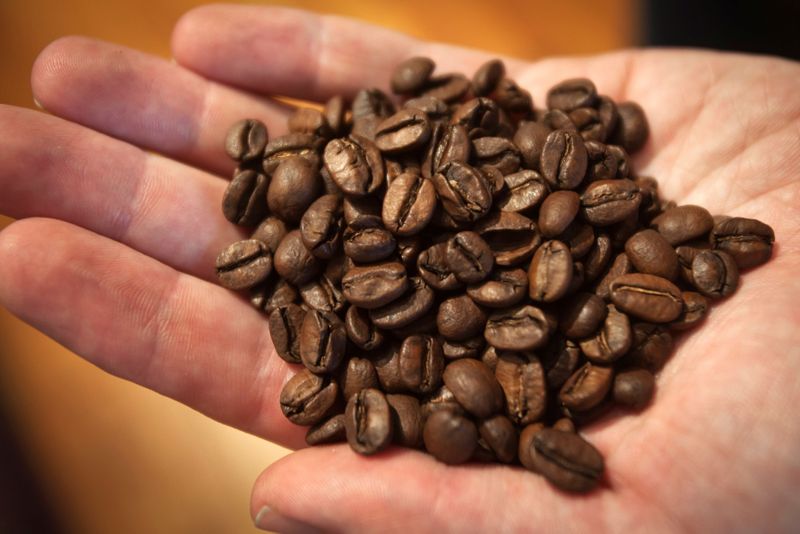By Marcelo Teixeira
NEW YORK (Reuters) - Disruptions to transportation of coffee around the world, caused by container shortages and port congestion, will likely keep coffee prices high for a longer time since they make it more difficult for the market to rebalance supplies geographically.
Coffee analysts and traders said on Friday during the annual conference organized by the Swiss Coffee Trade Association (SCTA) that transportation problems are preventing available supplies from moving quickly to meet demand in some areas of the world, boosting prices for the commodity.
"When you have a global supply deficit, you will look for stock draws. High prices would boost transportation (of available coffee), but that is really not happening," said Ben Clarkson, head of the coffee platform at Louis Dreyfus.
"There are clearly risks of higher prices. The market is scrambling for some kind of equilibrium but has not found that yet," Clarkson added.
Arabica coffee prices in New York were near the highest in seven years this week, as the market deals with the outlook of a reduced supply in top grower Brazil after drought and frosts.
"We believe in a deficit of around four million bags, other analysts see it as high as seven million bags," said Carlos Mera, head of agri commodities market research at Rabobank, adding that exports from Brazil and other producing countries have been slow due to shipping bottlenecks.

Nhung Ly, managing director at COMCO Trading in Vietnam, said the Asian country, the world's second-largest coffee producer, will have a large 2021/22 coffee production on top of already big carry-over stocks, but companies have been struggling to move that coffee out of the country.
The experts said that current high prices will eventually boost production in countries and regions other than Brazil, such as Colombia, Central America and Africa, which will lead to a more balanced supply, but that would take time.